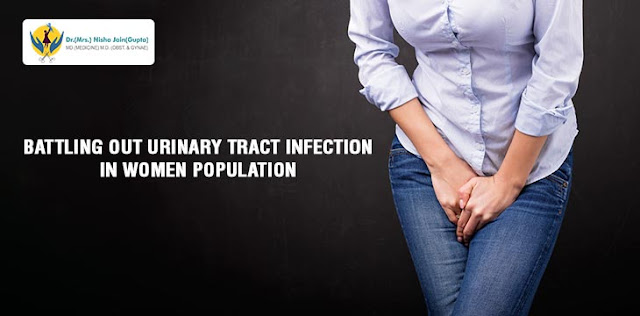Managing Your Fibroids Smartly
The best way of managing fibroids depends entirely on the sufferer.
Age and fibroids have a close relationship wherein we need to understand
the fibroid symptoms and the age as if you’re far away or close to
menopause is what is needed to be looked into. There could be other
questions which also need to be looked for like whether you want
children and how much time you can save for recovery. There are ample of
factors which need to be looked for when you are choosing the best
treatment for fibroids.
The estrogen highs and lows levels add to hot flashes and night sweats and also add to fibroid development, so signs could become worse before they get more beneficial. Females who opt for estrogen replacement, to minimize menopause discomfort have been suspected with an increase in fibroid growth.
Content Source : https://www.drnishajain.com/managing-your-fibroids-smartly/
Factors Impacting Fibroid Treatment
If you possess fibroids that aren’t displaying signs, you gynecologist may suggest a ‘wait and see’ strategy. Simply you need to undergo regular exams and imaging studies. Fibroids can spread quickly and cause notable health problems. They might appear dormant, but do not neglect them.Fibroids and The Menopause
If you are aging and the symptoms aren’t terrifying, you might consider the best possible resolution out. Declining estrogen levels are linked with a decrease in fibroid activity. But be informed that the time before menopause can indicate wildly fluctuating hormone levels.The estrogen highs and lows levels add to hot flashes and night sweats and also add to fibroid development, so signs could become worse before they get more beneficial. Females who opt for estrogen replacement, to minimize menopause discomfort have been suspected with an increase in fibroid growth.
Obesity and Fibroids
If you are overweight, fibroid-related difficulties could last long after the periods stop. In such situations, the fat cells generate an estrogen-like substance that encourages fibroid formation. Obesity has been associated with higher rates of roaming estrogen and its production. For instance, in premenopausal women, anovulatory menstrual periods can occur more frequently. This generates extended amounts of time where estrogen is present without the compensatory effects of progesterone.Medical Therapy
Fibroid problems like extreme bleeding or pelvic pain may be momentarily eased by medicines to regulate the menstrual cycle. Especially medical therapy won’t eradicate the difficulty, but by lowering estrogen levels one can reduce the evidences. There are several types of medical treatment, but all involve taking artificial hormones.Different Treatment Procedures
There are different treatment procedure for Fibroid treatment but what is the right treatment for you depends upon your symptomatic conditions and the age related factor.Hysterectomy
Hysterectomy is a generally suggested option for women with symptomatic fibroids. In such cases, the surgical removal of the uterus can end up all the problems with uterine fibroids. Certainly, this approach isn’t right, if you want children. You could favor keeping the uterus right where it is as hysterectomy is major surgery. When carried out laparoscopically through the vagina with a small cut, rather than a larger abdominal incision healing time is long and usually painful.Surgical Intervention
Operations to remove fibroids from the uterus either by scratching, scraping or heating tissue to a temperature that kills it is essential for younger fibroid sufferers. Particularly those who plan to grow pregnant such surgeries point to be complicated. Moreover, it can be simple to miss smaller fibroids or fibroids deeper in the uterine wall. They will keep evolving. Therefore, if we see surgical removal as a fibroid treatment or a way to assist fibroid related fertility issues, it could be definitely considered as a short-term solution. So, as the fibroids return, so does the demand for more surgery.Reference
Uterine fibroids may be discovered during a routine pelvic exam. There might be irregularities in the shape of your uterus, suggesting the presence of fibroids. In such a situation try meeting Dr Nisha Jain the best gynecologist in DelhiContent Source : https://www.drnishajain.com/managing-your-fibroids-smartly/




Comments
Post a Comment